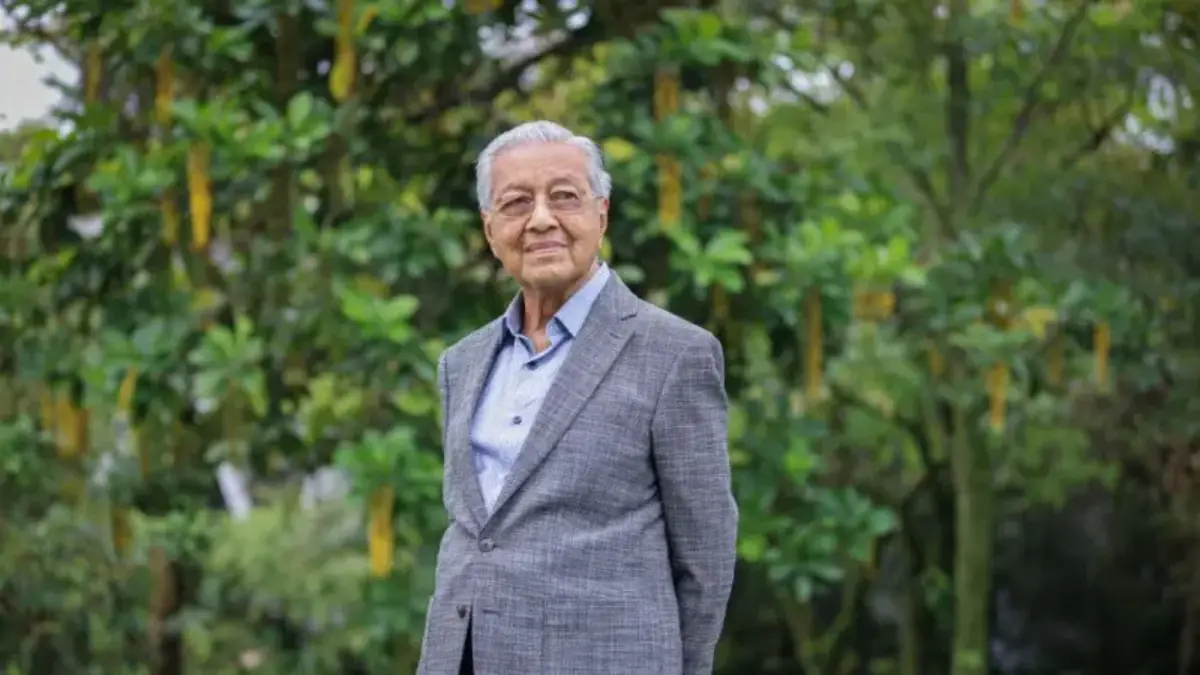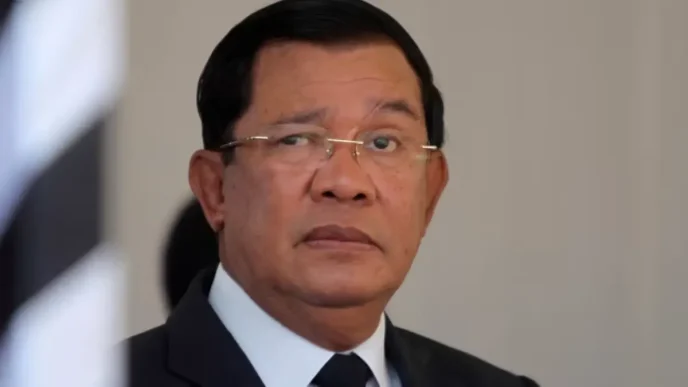In a sharp rebuttal to recent parliamentary findings, Malaysia’s former Prime Minister Tun Dr Mahathir Mohamad has rejected the notion of legal immunity over the contentious Batu Puteh sovereignty issue, insisting on his innocence. The 100-year-old statesman, who led the nation during critical decisions regarding the disputed islet, declared on social media that he welcomes a court battle to clear his name, despite an inquiry holding him responsible for Malaysia’s loss of the territory to Singapore.
Parliamentary Verdict and Mahathir’s Response
On July 22, 2025, Malaysia’s Dewan Rakyat, the lower house of Parliament, discussed findings from a Royal Commission of Inquiry (RCI) that pointed to Mahathir’s role in the government’s 2018 decision not to appeal the International Court of Justice’s (ICJ) 2008 ruling on Batu Puteh. Mahathir, in a Facebook post on July 23, expressed frustration over what he described as a guilty verdict without formal legal proceedings. “Immunity is for people who are afraid to go to court because they know they are guilty. I know I am innocent and I want to prove it” he stated.
Mahathir also noted that Prime Minister Datuk Seri Anwar Ibrahim had personally remarked in Parliament that no legal action would be taken against him due to his advanced age. “He also said no action should be taken against me because I am 100 years old” Mahathir wrote, reflecting on Anwar’s statement on July 22. This gesture of leniency, while perhaps compassionate, appears to have only fueled Mahathir’s determination to defend his legacy.
The Batu Puteh Dispute: A Historical Flashpoint
The Batu Puteh issue remains a sore point in Malaysia-Singapore relations, rooted in a long-standing territorial dispute over the small but strategically significant islet in the Straits of Johor. In 2008, the ICJ awarded sovereignty of Batu Puteh to Singapore, while assigning nearby Batuan Tengah to Malaysia. A third maritime feature, Tubir Selatan, was left to be determined by future delimitation of territorial waters. The ruling was a blow to Malaysia, prompting calls for a review of the decision.
Fast forward to 2018, under Mahathir’s second tenure as prime minister, the Malaysian government withdrew its application to the ICJ for a review of the 2008 ruling—a decision that has since drawn intense scrutiny. Critics argue that the withdrawal squandered a chance to reclaim the islet, while others suggest the move was pragmatic given the low likelihood of a favorable outcome. The RCI, established with the consent of His Majesty Sultan Ibrahim, King of Malaysia, in February 2024, concluded its investigation in December of that year, identifying significant weaknesses in the handling of not just Batu Puteh but also Batuan Tengah and Tubir Selatan sovereignty matters.
The commission’s findings, presented to Parliament in July 2025, placed much of the responsibility on the administration at the time, with Mahathir as its head. While the report did not recommend prosecution, its conclusions have reignited public and political debate over accountability and national pride in territorial matters.
Mahathir’s Legacy Under Scrutiny
Mahathir Mohamad, a towering figure in Malaysian politics, has served as prime minister twice—first from 1981 to 2003, and again from 2018 to 2020. Often credited with transforming Malaysia into a modern economic powerhouse during his initial tenure, his later years in power were marked by political turbulence and controversial decisions. The Batu Puteh issue is but one of several points of contention that have shaped public perception of his leadership in his twilight years.
At 100 years old, Mahathir remains a polarizing figure. Supporters view him as a staunch defender of Malaysian interests, unafraid to challenge international rulings or domestic critics. Detractors, however, argue that his handling of sensitive issues like Batu Puteh reflects a lack of foresight or accountability. His insistence on proving his innocence in court, rather than accepting the immunity implied by Anwar’s comments, underscores a refusal to let his legacy be defined by parliamentary critique alone.
Anwar Ibrahim’s Delicate Balancing Act
Prime Minister Anwar Ibrahim, who has had a complex and often adversarial relationship with Mahathir over decades, finds himself navigating a delicate political landscape with this issue. Anwar’s acknowledgment of the RCI findings in Parliament on July 22—holding Mahathir likely responsible for the loss of Batu Puteh—carries weight, yet his decision against pursuing legal action signals a pragmatic approach. This leniency, attributed to Mahathir’s age, may also reflect a desire to avoid further polarizing an already divided political sphere.
Anwar’s administration has faced its own challenges in addressing historical grievances while maintaining focus on current governance. The Batu Puteh controversy, while significant, competes with pressing domestic issues such as economic recovery and social reforms. By publicly addressing Mahathir’s role without pushing for legal consequences, Anwar may be attempting to close a chapter on the issue without alienating segments of the population who still revere the former leader.
Legal and Diplomatic Implications
The Batu Puteh saga extends beyond domestic politics, touching on Malaysia’s diplomatic relations with Singapore. The islet’s strategic location near the entrance of the Strait of Malacca, one of the world’s busiest shipping lanes, amplifies its importance. Singapore has maintained control over Batu Puteh—known as Pedra Branca in Singapore—since the ICJ ruling, operating a lighthouse and other facilities on the islet. Malaysia’s decision not to pursue a review in 2018 effectively cemented this status quo, a point of frustration for many Malaysians who view the loss as a national slight.
The RCI’s identification of “weaknesses” in handling the sovereignty issues raises broader questions about Malaysia’s legal and diplomatic strategies in territorial disputes. While the commission’s report has not been made fully public, its conclusions suggest lapses in decision-making processes that could inform future policy. For now, however, the focus remains on Mahathir’s personal accountability rather than systemic reform.
From a legal standpoint, Mahathir’s rejection of immunity and call for a court hearing is unlikely to materialize unless formal charges are pressed—an outcome Anwar has explicitly ruled out. This leaves the issue in a state of limbo, with public opinion split between those who demand justice for perceived national losses and those who see Mahathir as a scapegoat for broader governmental failures.
Public Sentiment and National Identity
The Batu Puteh controversy taps into deeper currents of national identity and pride in Malaysia. Territorial disputes, particularly with neighboring Singapore, often evoke strong emotions among the public, fueled by historical tensions and economic disparities. Social media platforms have seen heated discussions following Mahathir’s recent statements, with some users praising his defiance and others questioning why the issue remains unresolved nearly two decades after the ICJ ruling.
The role of age in political accountability has also emerged as a point of debate. Anwar’s decision to forgo legal action due to Mahathir’s advanced age has prompted mixed reactions—some see it as a respectful gesture, while others argue that accountability should transcend personal circumstances. This intersection of law, politics, and cultural values highlights the complexity of addressing historical grievances in a modern context.
Looking Ahead: A Legacy in Question
As Malaysia grapples with the fallout of the Batu Puteh findings, Mahathir Mohamad’s defiant stance ensures that the issue will not fade quietly into history. His insistence on proving his innocence, even at 100 years old, reflects a broader struggle to define his legacy amid criticism and admiration. For Anwar Ibrahim, the challenge lies in balancing respect for a political elder with the demands of transparency and governance.
The broader implications for Malaysia-Singapore relations and national policy on territorial disputes remain uncertain. What is clear, however, is that the Batu Puteh controversy continues to resonate as a symbol of national pride and loss. As debates unfold in Parliament and online, the question of accountability—and who ultimately bears responsibility for decisions made years ago—lingers as a test of Malaysia’s political maturity.
















